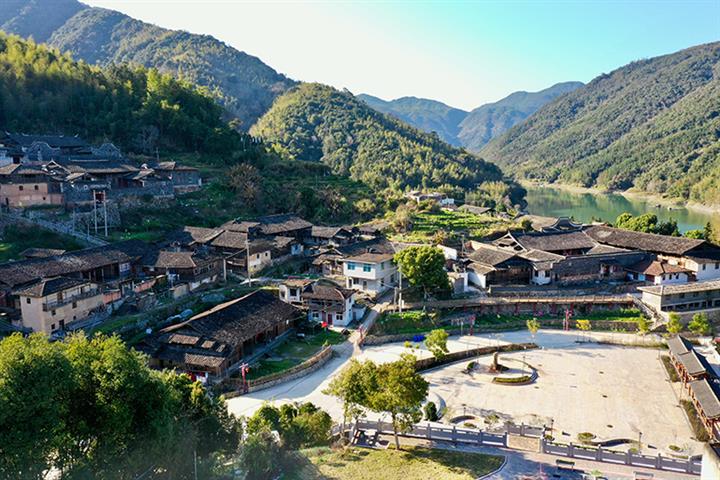 Chinese Party Calls for Plan to Deal With Village Debts of USD129.2 Billion at Two Sessions
Chinese Party Calls for Plan to Deal With Village Debts of USD129.2 Billion at Two Sessions(Yicai Global) March 9 -- One of China’s political parties has called for a plan to dispose of all village debts after an official survey found that the collective amount owned by the country’s 700,000 villages tallied CNY900 billion (USD129.2 billion) in the first half of 2019.
A comprehensive plan is needed to deal with the issue, the central committee of the China Democratic League said in a proposal submitted during the ongoing Two Sessions, the country’s key annual policy setting meetings.
The CDL, one of China’s eight political parties other than the Communist Party, put forward measures including hiring qualified accounting firms and auditors to examine village accounts and asking higher-level officials or village leaders dedicated to dealing with debt issues. It also suggested that salaries and promotions for local officials should be connected to the extent that they deal with debts in their areas. Villages are also encouraged to develop and make profits.
And village-level debt risk is worsening, the CDL said, citing a survey by the Ministry of Agriculture and Rural Affairs.
The CDL listed various reasons for the rising debts. Some villages have lacked adequate funding for local services such as elderly care or projects to improve drinking water quality. The funds are supposed to be provided by higher county-level and district-level finance departments, but sometimes they do not materialize or are inadequate. Some have also launched local businesses, some of which have lost money due to poor management. Houses built with money borrowed in these villages cannot make profit due to the lack of tenants or few visitors.
Villages tend to borrow money from individuals in order to pay off bank loans and interest, as securing funds from banks, credit cooperatives and other lenders has become increasingly hard. As a result, many villagers have become creditors.
The more famous the village, the more debts they bear, said Zhou Li, a professor at Renmin University of China's School of Agricultural Economics and Rural Development, wrote in a recent article. The debts quickly accumulate and expand like a rolling snowball as the villages continuously bring in projects.
The debts build up because of a mismatch between the supply and demand for funding, non-standardized fund management, and messy accumulated debts, said Zhou.
Editors: Zhang Yushuo, Tom Litting